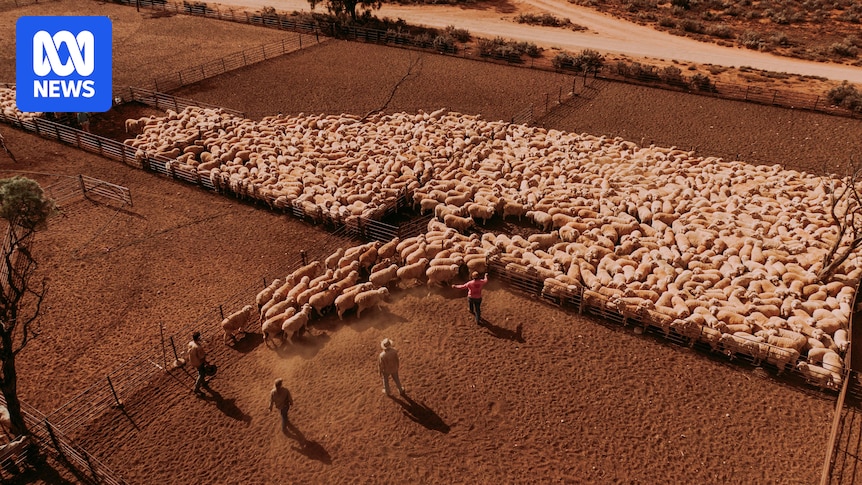The sale of Australia’s largest sheep station to a foreign buyer has been given the tick of approval by the WA government after almost seven months of waiting.
The UK-based Consolidated Pastoral Company (CPC) will be the new owners of Rawlinna Station, about 400 kilometres east of Kalgoorlie-Boulder.
The million-hectare station was established in the 1960s on the remote Nullarbor and covers an area roughly the size of Sydney.
In early March privately-owned CPC agreed to buy Rawlinna for an undisclosed sum from long-time owner Adelaide-based Jumbuck Pastoral.
The deal included a flock of about 30,000 sheep and was subject to several conditions, including approval by the Foreign Investment Review Board (FIRB) and the WA government, which needed to sign off on the transfer of the pastoral lease.
Troy Setter, chief executive of Consolidated Pastoral Company, was frustrated by the delays. (ABC Rural: Max Rowley)
CPC’s chief executive Troy Setter, who also sits on the board as a director, had criticised the WA government for dragging its feet in comparison to other deals the company had done in the Northern Territory and Queensland, which he said took weeks not months.
Mr Setter told the ABC the Department of Planning, Lands and Heritage notified CPC the transfer of the pastoral lease was completed this week and settlement was expected in October.
“Hopefully they can continue to improve the efficiency for others looking to buy properties in Western Australia,” he said.
Upgrading the station a priority
Mr Setter said once CPC took the keys to Rawlinna the initial focus would be upgrading accommodation for staff after major flooding events last year caused widespread damage, as well as investing in new fencing.
He said the plan was to grow the sheep flock and the potential for Rawlinna to be restocked with cattle.
Rawlinna Station’s 2025 shearing campaign ended in late February with more than 800 bales of wool. (Facebook: Rawlinna Station)
“We want to get the property back to being a large and significant producer of quality wool and merino meat,” Mr Setter said.
“There is some opportunity at the southern end of the property to put 1,000 to 2,000 head of cattle, because that country is probably better suited to cattle, and to get the property back to being a proud producer of wool and meat.”
He did not rule out the possibility of Rawlinna being used for renewable energy projects in the future after Andrew Forrest’s Fortescue had initially emerged as a potential buyer of Rawlinna.
“We’re focused on the agricultural pursuits,” he said.
“We know that region has been highlighted as having opportunities for energy production, and we would be happy to talk to those sort of operators in the future, but at this stage CPC’s focus is absolutely on the agricultural side of the business.”
Rawlinna Station covers an area roughly the size of Sydney. (ABC Goldfields-Esperance: Jarrod Lucas)
David Vandenberghe, who is principal at the Wattle Dale fine merino stud at Scadden, said the Rawlinna sale would boost confidence in the sector.
“While the wool price has risen quite a bit in the last few weeks … people are still a bit cautious. But if we get another 12 months of this I think things will certainly change around,” he said.
“It makes other investors look at our industry. We’ve gone through a point where no-one really wanted to invest into livestock heavily, and this changes the game.
“People follow other people’s leads and hopefully we might see some of the other stations get investment put back into them.”

